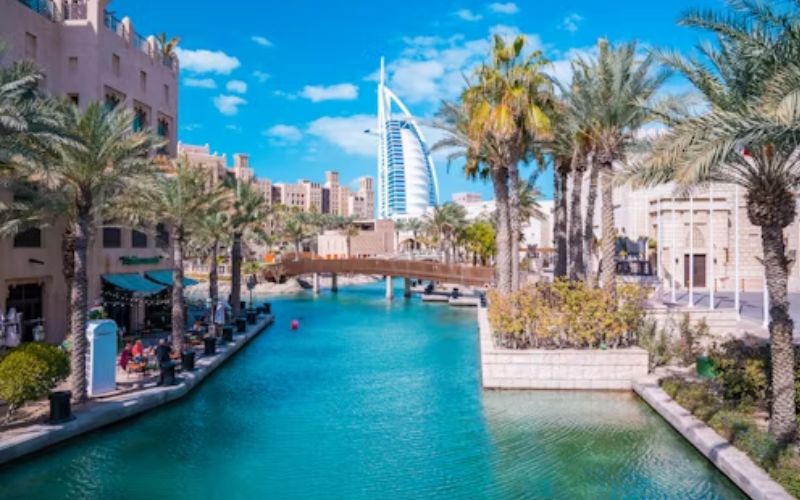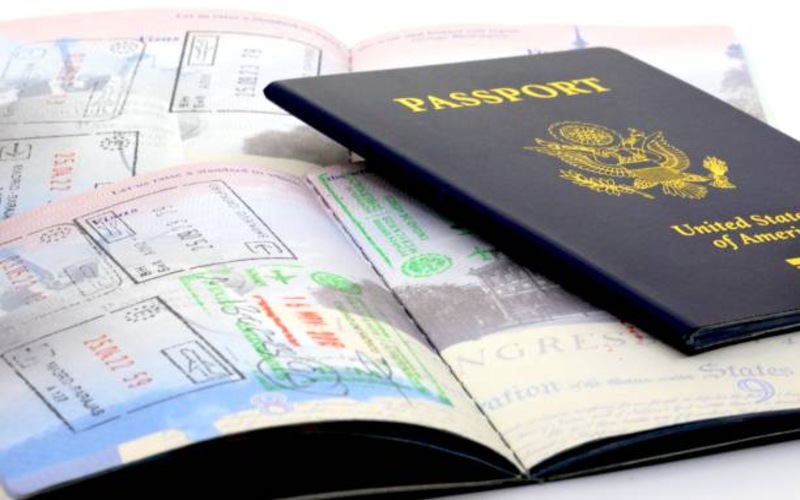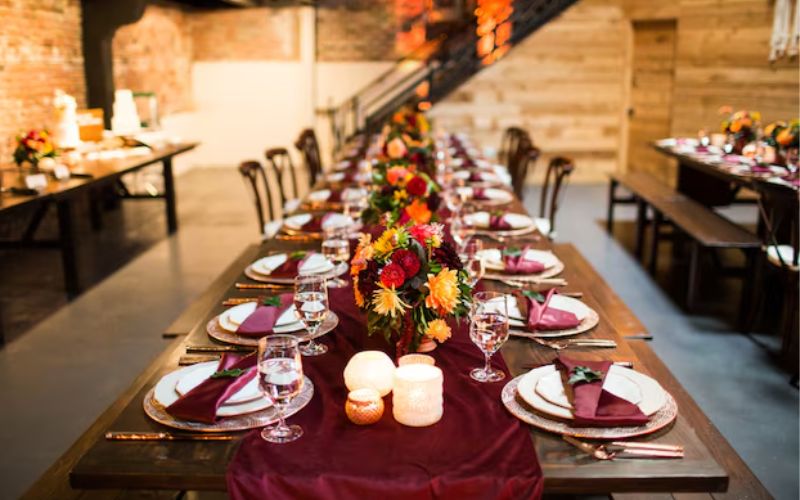7 Emirati Traditions Every Tourist Should Respect

Strong 8k brings an ultra-HD IPTV experience to your living room and your pocket.
The United Arab Emirates (UAE) is really showing modern innovation and very deep cultural traditions. The nation is fast developing with the high-end shopping mall and skyscrapers. Then the UAE is stacked on its rich heritage and culture values. Tourists from different countries come to this country to indulge their senses in luxury and modernity; one cannot forget learning and respecting local traditions that shape every little aspect of life. Emirati culture is influenced generally by Islamic values, and these values ultimately touch every aspect of life because Islam emphasizes respect, family, modesty, and hospitality.
To really experience interaction with the community in the country, one needs to understand and respect Emirati culture if one is ever to travel to the UAE. Business, leisure, or probably a long stay, such as the 60 Days Multiple Entry Visa, demand that one comprehends cultural norms for an enjoyable trip. For example, visiting the great Sheikh Zayed Grand Mosque, going on desert safaris, or tasting the local food means understanding important elements of respect for modest dress, hospitality shown, and public behaviour. Embracing these will have you taking home great memories while honouring the culture and values of the UAE.
Here are some Emirati Traditions Every Tourist Should Respect.
1. Islamic Practices Must Be Respected:
Islam is the official religion of UAE, and its teachings are given due importance in daily life. Respecting Islamic traditions, especially prayer times, is an important part of Emirati culture. Although the UAE has five prayer times in a day, most shops and businesses close for a short time during these hours to allow Muslims to offer prayers. Tourists should be respectful during those periods by avoiding loud noises and distractions. Moreover, the holy month of Ramadan is observed with great respect, where eating, drinking, or smoking publicly during daylight hours is rendered illegal. Tourists should uphold such restrictions and observe local customs, such as not eating or drinking in public during Ramadan.
2. Dressing Modestly:
Though the UAE is a cosmopolitan society welcoming people from all directions of the globe, modesty in dressing remains a vital cultural practice, especially in public. Emirati women typically wear the abaya (a long black cloak) that covers them from head to toe, while men wear a dishdasha (long white robe). Though in comparison to other Gulf areas the UAE is relatively liberal, tourists are encouraged to dress conservatively. This applies even more to women, as revealing and skimpy outfits are inappropriate for public venues, such as malls, restaurants, and public buildings. While swimsuits are suitable around beaches and pools, discretion is advised while leaving these areas. Men should steer clear of wearing shorts and sleeveless tops in public spaces, like malls and mosques. Modestly dressed persons are regarded as showing respect for the local culture and value system.
3. Public Displays of Affection:
Emirati society tends toward conservativeness in general; public displays of affection are certainly frowned upon. Holding hands, hugging, or kissing in public could make others around you uncomfortable and may lead to legal advocation in the worst-case scenario. Couples are discouraged from engaging in anything that might be construed as romantic or intimate in public. In some private surroundings like hotels or resorts, there may be more leniency toward PDA, but caution is always the better part of valor. Acknowledging the finer cultural sensitivities of PDA goes a long way in avoiding offending the locals inadvertently and also in showing your respect for the social norms of the land.
4. Respect for Elders and Authority:
Holding respect for elders and authority figures in all aspects of life, especially the law, is profoundly instilled in the Emirati culture. Though the mannerism of approaching the older person is highly conscious and well-regarded, it starts with a respectful greeting such as "As-salamu alaykum and progresses with revering attentiveness in a conversation." Elders in many social situations sit in the best places, and their opinions are always welcomed. On the same note, authority figures—be they police, government officials, or religious leaders—are looked upon with high esteem. Tourists are encouraged always to be courteous to locals and, in all situations, follow local customs and demonstrate respect toward authority.
5. Hospitality and Sharing Food:
Hospitality holds an esteemed place among cherished traditions in the lives of the inhabitants of the Emirates. An Emirati shows his generous hospitality by offering food and drinks to guests as a sign of respect and friendship. If someone could get food in his house, he would gladly accept any hospitality even if he is not very hungry. To refuse food or drink under any circumstances would be seen as an insult. Among any number of tasks, serving Arabic coffee (qahwa) has a special significance. The coffee is offered in small cups and accepted as a mark of respect. Should the guest not want to have another cupful of coffee, it would be polite to shake the cup gently and leave enough to show that they had enough. Meals being shared are essential to Emirati culture, so tourists should duly appreciate it and respect the local food-sharing culture.
6. Protecting the Environment:
Emiratis respect and pride themselves in environmental conservation, which includes natural land preservation as part of their culture. In particular, this consideration becomes evident in the desert areas, where camel riding and desert safaris are popular tourist activities. The delicate desert ecosystem must be respected in line with sustainability guidelines. Such examples would include avoiding litter when on Desert safaris and being mindful of wildlife and plant life. It is also equally important to show respect for the desert's cultural significance to the Emirati people. The UAE is doing an immense lot in promoting sustainability, and respecting environmental practices is evidence of understanding the Emirate's commitment toward conserving natural resources for the coming generations.
7. Respect for the Sacredness of Mosques:
Mosques are an integral part of the religious life in the Emirates, and a visit to one could leave a lasting impression on a tourist. Nevertheless, visiting mosques must be approached with reverence and respect. For a mosque visit, tourists should dress modestly by covering their arms and legs. Women must ensure to cover their heads in the mosque; some mosques even provide robes or scarves to visitors for the visit. Shoes must be taken off before entering the mosque, and photography is generally prohibited in these sheltered places. Visitors should keep silent inside the mosque; loud voices and disruptive sounds are discourteous. Guided tours are offered in many mosques, like the Sheikh Zayed Grand Mosque in Abu Dhabi, specifically for non-Muslim visitors, enhancing the understanding of the significance of the mosque and the Islamic faith.
Conclusion:
For tourists interested in making the best of their visit to the UAE while also ensuring harmonious relations with the community, it is essential to observe Emirati traditions. The UAE is a country that is rich in cultural and Islamic traditions and, as a visitor, learning and adhering to these traditions will only ensure a more respectful and all-encompassing experience. These traditions also provide a link for tourists and locals through modest dress, the warm embrace of Emirati hospitality, the respect of religious customs, et cetera. The awareness of these cultural norms is not just an act of respect but enriches their own understanding of the rich Emirati heritage.
For anyone who is intending to stay for a long time, say with a 30 Days Multiple Entry Visa, it becomes all the more important to learn about the local traditions. Long stints allow for the possibility of deeper connections where one truly experiences the culture. Noting such highlights on Emirati traditions will ensure that, not only is the traveler fulfilled and respects the traditions, but also comes away with happy memories of both high-rise buildings and breathtaking marvels that belong to the old order. Tourists hoping to ensure an enriching, respectful, and pleasurable stay in the UAE should adhere to the cultural modalities.
Note: IndiBlogHub features both user-submitted and editorial content. We do not verify third-party contributions. Read our Disclaimer and Privacy Policyfor details.







